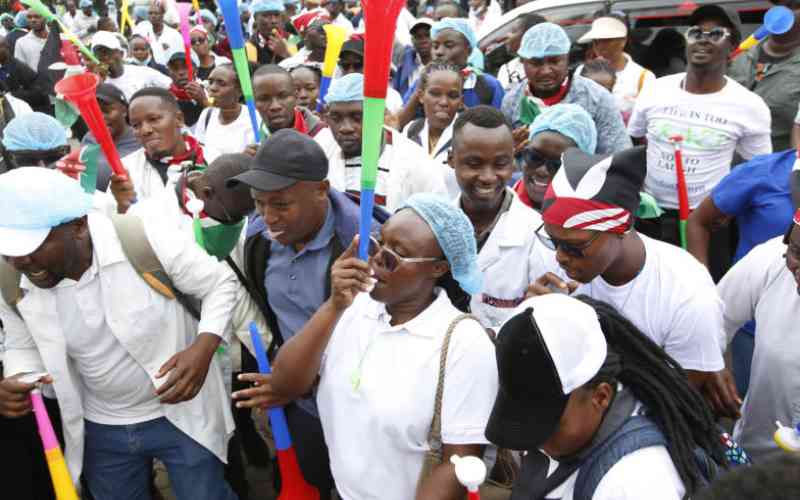
The recent Africa Leadership Meeting declaration on increased domestic resource mobilisation for health has underscored the importance of prioritising healthcare financing in Kenya.
While we have made significant progress in improving life expectancy, reducing infant and child mortality rates, and combating epidemics such as HIV and TB, there are still major challenges to overcome.
Maternal mortality, skilled attendance at birth, malnutrition, non-communicable diseases and malaria elimination remain areas where Kenya is off-track in meeting the Sustainable Development Goals.
One of the underlying issues is the unequal distribution of qualified healthcare professionals, particularly at higher levels of care. The system also suffers high absence rates and staffing levels below international standards. In addition, disparities in health financing between counties persist. Moreover, there is a pressing need to increase domestic financing for health in Kenya, as real expenditures per capita have stagnated, and developments in health have declined. Although the government's spending on health has increased nominally, it has not kept pace with inflation and population growth.
Additionally, donor support has diminished as Kenya's status transitioned to a lower-middle-income country. These factors, combined with the country's challenging economic climate and high debt burden, pose significant constraints on fiscal space for health budget allocations.
Due to the macroeconomic challenges brought about by the Covid-19 pandemic, it is imperative that Kenya mobilises domestic resources for health. The anticipated global recession, rising drivers of ill health such as poverty and food insecurity, and reduced development assistance emphasize the need for a comprehensive and resilient healthcare system.
The commitments outlined in the African Leadership Meeting Declaration serve as a backbone for health financing reforms, encouraging increased domestic investments, improved resource allocation, enhanced public financial management, engagement with the private sector, and regional collaboration.
Kenya must adopt a multifaceted approach that encompasses various aspects of healthcare financing to effectively mobilise domestic resources for health. It is essential to increase overall domestic investment in health and measure progress against benchmarks set by the Africa Scorecard on Domestic Financing for Health.
- UHC workers threaten strike, demand permanent terms and gratuity
- Kenya steps up health investments to safeguard mothers and children
- Health Ministry and Treasury seek collaboration to fast-track UHC implementation
- New 25-year plan targets better maternal and child health in Kenya
Keep Reading
This means allocating a larger portion of the national budget to health care, with a focus on areas that have a significant impact on mortality and human capital development.
Kenya must also optimise the use of healthcare resources as an aspect of domestic resource mobilisation. There is also a need to reorient health spending and systems towards targeting diseases with the greatest impact on public health outcomes is essential.
This requires strategic allocation of resources, prioritising prevention and cost-effective interventions, and ensuring efficient procurement and purchasing practices. By optimising the use of resources, Kenya can achieve better health outcomes with the available funding.
Sustainable healthcare financing requires coherence in health investment. Development partners and the private sector should align their efforts with the country's health priorities and contribute.
Collaboration and coordination among stakeholders can help ensure that resources are allocated effectively and efficiently, maximizing their impact on health outcomes.
Mobilising domestic resources for health necessitates the need for an improved public financial management (PFM) capacity. This involves strengthening tax collection mechanisms and increasing the proportion of tax revenue collected as a percentage of GDP.
Equitable and efficient general taxation, along with improved revenue collection, can significantly boost the funds available for healthcare. Building the capacities of finance and tax revenue authorities is essential to achieve these objectives.
 The Standard Group Plc is a multi-media organization with investments in media
platforms spanning newspaper print
operations, television, radio broadcasting, digital and online services. The
Standard Group is recognized as a
leading multi-media house in Kenya with a key influence in matters of national
and international interest.
The Standard Group Plc is a multi-media organization with investments in media
platforms spanning newspaper print
operations, television, radio broadcasting, digital and online services. The
Standard Group is recognized as a
leading multi-media house in Kenya with a key influence in matters of national
and international interest.




